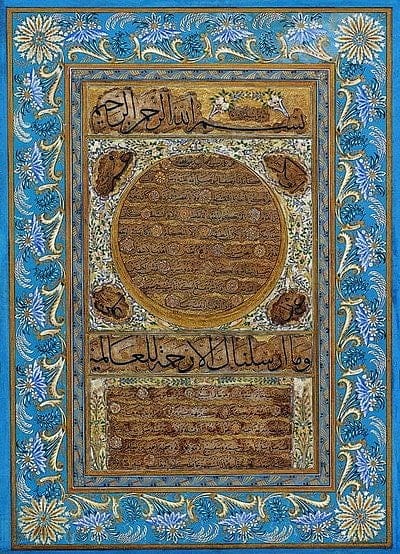Twenty-Five Things To Know About Islam: Part 2: How Do We Know What We Know About Muhammad?

3. The main texts of Islam are the Qur'an, the Hadith, and the Sira. The Qur'an is the Uncreated and Literal Word of God. It was revealed to Muhammad over 23 years, and cannot be changed. The Qur'an contains contradictions within itself, between the milder, so-called "Meccan" verses, which Muhammad received when he was still relatively powerless in Mecca, and the later, harsher, "Medinan" verses, which Muhammad received after he had won Medina, no longer had to curry favor with anyone, and could afford to be as harsh as he pleased. The interpretive vehicle for preferring the later, harsher verses is "abrogation," ornaskh. The earlier verses are said to be "abrogated," or cancelled, by the later verses. Muslim apologists ordinarily will quote from the milder verses, and of course do not explain that these verses have been "abrogated" and no longer apply.
4. The Hadith are the written records of what Muhammad said and did. In the centuries immediately following what Muslims believe was the death of Muhammad, many Hadith were created by imaginative Muslims. It became the job of specialists – muhaddithin – to study the existing Hadith, to subject them to examination so as to winnow down the tens of thousands, or even hundreds of thousands, of stories about Muhammad — Hadith — that existed to a manageable number. These muhaddithin in the main relied on the study of the isnad-chain – that is, study of the transmission of various Hadith (the plural in Arabic is ahadith, but convention in English allows for either ahadith or hadith as the plural) back as far as possible, from person to person, ideally all the way back to the time of Muhammad and an eyewitness to what he said or did.

